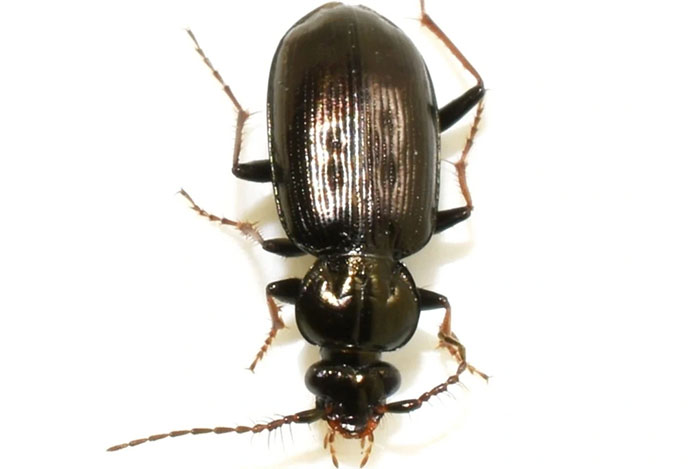Beetle species sparks debate over Darwin's theory of evolution
A tiny insect that survived the extinction event that killed the dinosaurs questions evolutionary theory.
The mass extinction event 66 million years ago wiped out three-quarters of all species, plants and animals, on Earth. Not even the dinosaurs survived.
Among the survivors, however, was a small black beetle, called a runner beetle, or carabidae , belonging to the family Carabidae, which challenged Charles Darwin's theory of evolution.

A tiny beetle has raised big questions for Darwin's theory of evolution (Photo: SCMP).
According to Darwin, all species, in order to survive the restructuring of nature, will have to change and evolve to adapt to the new world order.
Yet this common insect has remained unchanged for at least 100 million years, according to a new study published in the journal Palaeoentomology and The Innovation.
Behind the research is Cai Chenyang, a researcher at the Nanjing Institute of Geology and Paleontology, Chinese Academy of Sciences.
To come to this conclusion, scientists found a species of Cretaceous runner beetle among three amber fossils in the Hukawng Valley, in northern Myanmar, dating back about 100 million years.
When comparing preserved specimens with modern living individuals, the team found that the insects did not change their shape, size, or even their eating habits, despite drastic changes in their habitat, including mass extinction events.
This phenomenon is called "evolutionary stasis" by researchers , challenging Charles Darwin's theory of evolution, and will change our thinking about many phenomena and things that exist on this planet.
In recent years, more and more scientists have called for a serious re-evaluation of Darwin's theory.
In 2014, in an article published in the journal Nature, a group of eight scientists asked the question: "Does the theory of evolution need to be reconsidered?" Their answer was: "Yes, it is urgent . "
- Darkling Beetle: Tiny creature with 'quantum evolution' ability
- 9 reasons Darwin's theory of evolution is wrong
- Controversy 'unique' about Evolutionary theory
- Research points to 'holes' in Darwin's theory of evolution
- People continue to evolve
- Challenges to the theory of species origins
- A beetle named after the young environmental activist Greta
- New theory of evolution from water to shallow
- People cannot predict their own evolution
- 8 scientific findings prove the theory of evolution is correct
- The truth about human origin
- The spider is strong enough to stop a train
 Why do potatoes have eyes?
Why do potatoes have eyes? 'Tragedy' the world's largest carnivorous life: Death becomes ... public toilet
'Tragedy' the world's largest carnivorous life: Death becomes ... public toilet Tomatoes were once considered 'poisonous' for 200 years
Tomatoes were once considered 'poisonous' for 200 years Detecting microscopic parasites on human face
Detecting microscopic parasites on human face